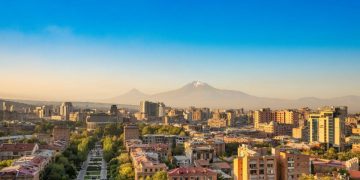Astana, December 10, 2024 – On Human Rights Day, Kazakhstan reaffirmed its commitment to advancing human rights and strengthening democratic institutions. Last year, marking the 75th anniversary of the Universal Declaration of Human Rights, President Kassym-Jomart Tokayev’s enactment of the III Presidential Decree on Human Rights and Rule of Law, along with a comprehensive Action Plan, underscored the country’s determination to align its legal framework with international human rights standards.
Key Human Rights Reforms
Kazakhstan has implemented significant reforms aimed at ensuring the protection of human rights through legislative measures, enhanced institutions, and strengthened cooperation with international organisations. The country reaffirmed its commitment to the Second Optional Protocol to the International Covenant on Civil and Political Rights by abolishing the death penalty, signalling its dedication to upholding the highest human rights standards. Access to justice has been enhanced through the establishment of the Constitutional Court and the Office of the Commissioner for Human Rights, allowing citizens direct recourse in cases of rights violations.
In addition, the introduction of the Social Code and the Commissioner for the Rights of Socially Vulnerable Groups has provided stronger protections for marginalised communities, ensuring comprehensive social support.
Protections for children and persons with disabilities have also been reinforced through the ratification of key UN protocols, demonstrating Kazakhstan’s efforts to align national legislation with international standards.
Furthermore, robust legal frameworks addressing harassment, domestic violence, and gender inequality have been enacted. To support these efforts, gender issues advisers have been appointed in all regions, tasked with addressing gender-specific challenges. Complementing these reforms are two national action plans: one promoting equal rights for men and women, and another advancing women’s inclusion in peacekeeping and security roles, further cementing Kazakhstan’s commitment to human rights and gender equality.
Partnerships for Progress
On December 10, a scientific-practical conference organised in Astana by the Office of the Commissioner for Human Rights, the United Nations Development Program (UNDP), and various Kazakh government bodies assessed the country’s progress while identifying remaining challenges.
Kazakhstan’s Human Rights Commissioner Artur Lastayev highlighted that the country has recognised the authority of six UN human rights treaty bodies and has taken steps to strengthen its legal and judicial institutions. He noted that over 6,000 appeals were received in the first 11 months of 2024, reflecting increased public awareness and trust in human rights protection mechanisms.
Ambassador of the European Union (EU) to Kazakhstan Aleška Simkić emphasized the deepening human rights partnership under the EU-Kazakhstan Enhanced Partnership and Cooperation Agreement. “Kazakhstan is our trusted partner… we are also having fruitful conversations on the rule of law and human rights within this framework,” said Simkić.
UNDP Resident Representative Katarzyna Wawiernia applauded Kazakhstan’s efforts in institutional strengthening, judicial reform, and fostering dialogue between the government and civil society. “For over 20 years, UNDP has supported Kazakhstan’s rule of law initiatives… transformations in judicial and law enforcement systems have strengthened human rights protections,” she stated.
Looking Ahead
Kazakhstan remains committed to advancing human rights by enhancing the rule of law, fostering a democratic society, and collaborating with international partners. Ongoing initiatives include combatting human trafficking by introducing strengthened legal protections and ensuring stricter criminal accountability for perpetrators. This includes comprehensive measures targeting crimes such as forced prostitution, abduction, and trafficking involving minors.
Environmental justice has also emerged as a critical focus, with UNDP-supported initiatives promoting a human rights-based approach to environmental policy, ensuring citizens’ right to a clean and sustainable environment. In the realm of labour rights, Kazakhstan has adopted International Labour Organization (ILO) standards aimed at enhancing workplace safety, reducing industrial accidents, and fostering fair labour practices.
These efforts reflect the country’s broader commitment to advancing human dignity and creating a just, equitable society while fostering international partnerships rooted in shared values.




























